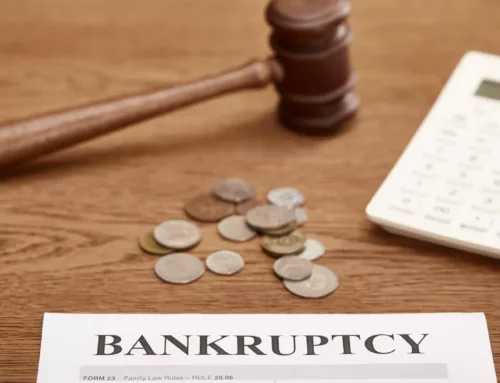If you’re struggling financially and dealing with debt, then filing bankruptcy might have crossed your mind. Bankruptcy filing can be a great tool for debt relief, but bankruptcy filing is not for everyone.
Before deciding whether to file for bankruptcy or not, it is best to talk to an experienced bankruptcy attorney. Here at Hammerschmidt Stickradt & Associates, our bankruptcy lawyers can help you decide in choosing the best solution to fit your needs.
A declaration of bankruptcy is a serious decision that you have to think through; a lot of things should be put into consideration before you can decide if it’s worth it. To help you with your decision, we have provided a list of the pros and cons of filing bankruptcy.
Advantages of Filing for Bankruptcy
- Creditors Will No Longer Call You

An automatic stay, however, can’t stop the following:
- Tax audits from the government
- Criminal proceedings
- Child support or alimony
- Collection of debt from co-signers and co-makers.
- You Can Start to Rebuild Your Credit Immediately
Declaring bankruptcy may initially be a setback for you, but once you filed bankruptcy, you can start to rebuild your credit score right away. Those who filed for bankruptcy are eligible to apply for a mortgage loan two years after filing bankruptcy. You can apply for car loans as soon as the debt discharge process has started. Whether you filed for a Chapter 7 bankruptcy and got a bankruptcy discharge, or managing your debt repayment plan under a Chapter 13 bankruptcy, you can start rebuilding your credit score even after you go bankrupt. Credit counseling will also be provided after bankruptcy.
- Bankruptcy Exemptions. A bankruptcy exemption might allow you to keep certain properties and assets when you “exempt” an asset. This means that your property will no longer be seized. Different bankruptcy exemptions are depending on the type of bankruptcy you’ll file.
To help you with the bankruptcy process, our Royal Oak bankruptcy attorneys can help. We can provide you with the legal help you need.
Disadvantages of Filing for Bankruptcy
If you’re considering bankruptcy, here are a few of its disadvantages that you would need to consider:
- Your Credit Score Will Be Affected. Once you filed for bankruptcy, it will stay on your credit report for 10 years after bankruptcy. Once you file a petition, your credit score will go down from 200 to 160 points. However, most petitioners are already suffering from bad credit before bankruptcy, and the debt discharge can also give you a clean slate in your credit history, giving you a fresh start after bankruptcy.
- Not All Debts Are Dischargeable. Although bankruptcy is a great debt-relief tool for unsecured debts like credit card bills, huge medical expenses, or unpaid utilities and rent, your other debts won’t be discharged. Student loans, child support, criminal restitution, and fines, or any debts acquired through fraud are non-dischargeable debts that can’t be canceled through a declaration of bankruptcy.
Bankruptcy filing might seem like it’s the only solution to your financial problems, but there are also other alternatives to bankruptcy. Our Royal Oak bankruptcy lawyers can help improve your financial situation.
Contact us today at Hammerschmidt Stickradt & Associates to schedule a free consultation.



